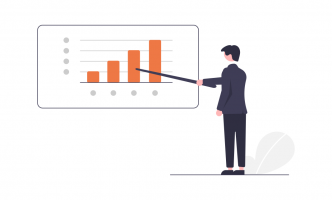Following speculation in the media, the Government have confirmed that there will be in an increase in National Insurance Contributions (NIC) from April 2022.
Unfortunately for many, it doesn’t stop there, with the rise also impacting employers and those who receive a dividend.
What are National Insurance Contributions?
The state benefit system is funded by the NIC’s currently made by UK workers. For example, state pension, unemployment benefits and the NHS. There are 4 types of contributions that can be made which depend on your salary and the type of employment you have.
This National Insurance increase is separate to the standard NI paid currently. The new amount, to be deducted from eligible workers and paid by employers, is a standalone charge of 1.25% which remains the same percentage for standard rate taxpayers through to the higher rates.
The increase in NIC will begin in the new tax year and then in the following year will be separated out as the standalone Health and Social Care Levy, which will be shown separately on payslips.
This new contribution will be paid by all working adults, including workers over the state pension age – unlike other NICs.
Why is the new contribution being brought in?
There are huge NHS backlogs, which are no surprise due to the strain of the pandemic. These taxes are going to be legally reserved for clearing this and a reform within the care sector.
Currently, anyone with assets worth more than £23,250 currently must fund their care in full. Changes to this are to be brought in and the increase NIC’s will help fund.
The Government has confirmed that from October 2023, anyone in England with assets under £20,000 will have their care costs fully covered by the state.
Those with between £20,000 and £100,000 will be expected to contribute towards their costs but will also receive state support.
Anyone with more than £100,000 worth of assets, including property, won’t receive state support.
There is also a £86,000 cap to be brought in on the amount anyone in England will need to spend on their personal care over their lifetime.
How much is the new National Insurance?
Certain NIC rates will increase by 1.25 percentrom April 2022.
This increase will apply to Class 1 NICs paid by employees and Class 4 NICs paid by self-employed workers. It will be collected in the same way current contributions are, either through PAYE or Self-Assessment.
As an example,
Those on £20,000 currently pay £1,252.
Under the plans, this would increase to £1,382.
This is an increase of £130 each year.
Those earning £50,000 currently pay £5,080.
Under new plans, this would increase to £5,711.
This is an increase of £631.
Employers will also be expected to increase the amount they contribute from 13.8% to 15.05%.
Class 2 self-employed NICs and Class 3 NICs, which are voluntary payments made to top-up state pension gaps, are not impacted by the levy.
The levy will also not be taken from pension income.
Dividends
This is a tax on money given to you by a company you hold shares in, usually when it’s made a profit.
The Government will also increase the rates of dividend tax, which are payable on dividend earnings of above £2,000/yr.
Depending on your earnings, there are 3 different rates, all of which will increase by 1.25 percentage point.
Ordinary rate is currently 7.5%. This will be increasing to 8.75%
Upper rate is currently 32.5%. This will be increasing to 33.75%
Additional rate is currently 38.1%. This will be increasing to 39.35%
An additional point to mention is that the tax paid on overdrawn directors loan accounts are directly linked to the dividend rate so it also likely to increase by 1.25%.
Taxable dividend income excludes dividends earned from investments held in ISAs.
Let us know what you think over on our social channels, or if you need to discuss / plan for the changes, call us on 01482 888820.

